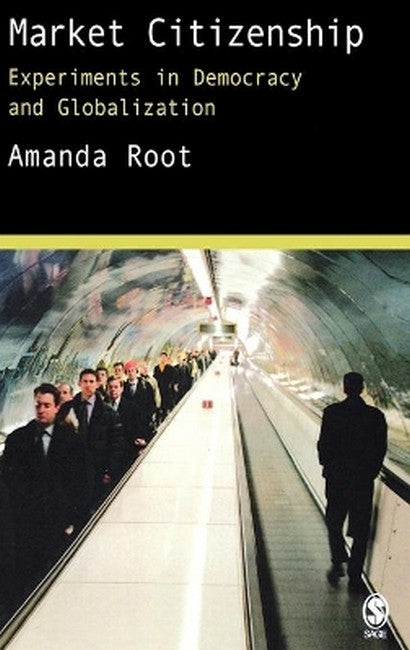Citizens are caught in a paradox. Voting levels are falling, there are growing feelings of powerlessness, social unfairness and yet citizens are constantly told that they have more choice as well as greater freedom and liberty. This book brilliantly explains these discrepancies. It shows that the new definitions of freedom as responsibility to create prosperity through markets is seriously distorting citizenship whilst appearing to be unbiased and neutral. It exposes inconsistencies in the market-based and apolitical vision of our collective future. Key features of the book are: " Its theoretical focus: outlining how market citizenship involves a new kind of rationality in which citizens are defined as individualized utility maximizers. " It has a wealth of examples showing how the idea that citizens act primarily to develop their narrow self-interest has encouraged the creation of competitive governance mechanisms. " A clear-sighted analysis of how market mechanisms are used to decide who are 'winners' and 'losers' - from the loss of youth groups funding to global treaties. " Its vital spotlight on the shortfalls when key contemporary issues - such as climate change- are being tackled through 'win-win' solutions with business working alongside consumers, with little or no role for government. " It analyses how localism and the devolution of power is being used to support the status quo. " It provides evidence of new kinds of engagement that are emerging because markets have undermined politics. This book will be essential reading for students, policy-makers and researchers of citizenship within sociology, politics, economics, geography and social policy. It will also be useful for those teaching citizenship in schools and colleges.

